
What type of sock should you buy?
Let's step right into it!
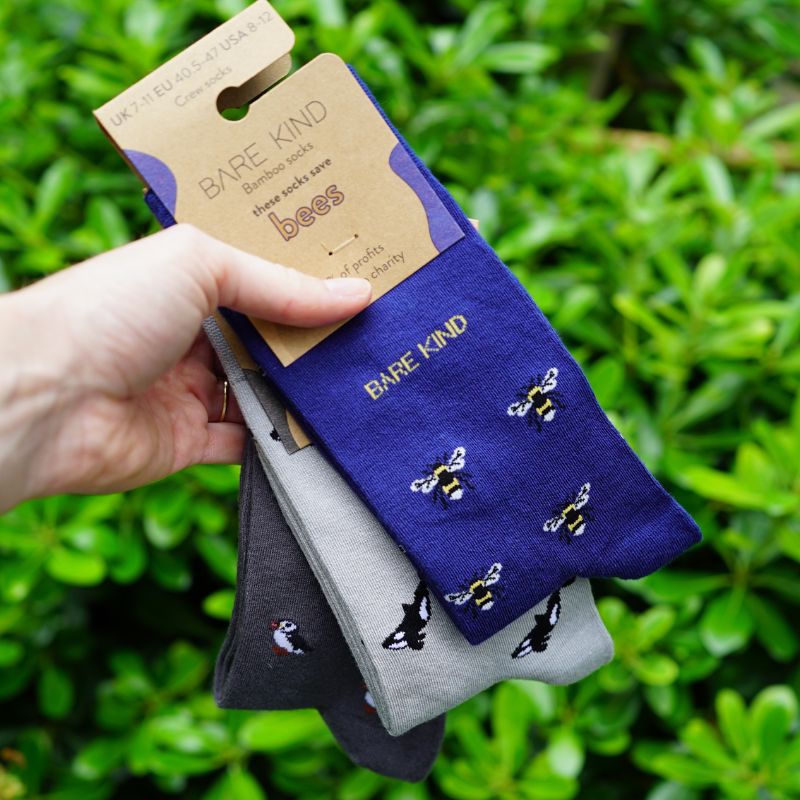
Being a conscious consumer is great for actually helping the environment. But there's a lot of talk around sustainable consumption amid a living crisis... most people need to weigh the benefits against the costs of spending their hard-earned money on an environmentally-friendly lifestyle.
After all, being sustainable and eco-friendly isn't easy. Everything environmentally friendly that you buy may be kinder to the environment- but they don't always function as well as synthetics (ahem: biodegradable deodorants). And if they do, they can sometimes cost a fortune. What's more, because it's a natural resource, you're not sure it'll last all too long!
So, what are you supposed to do when it comes to clothes?
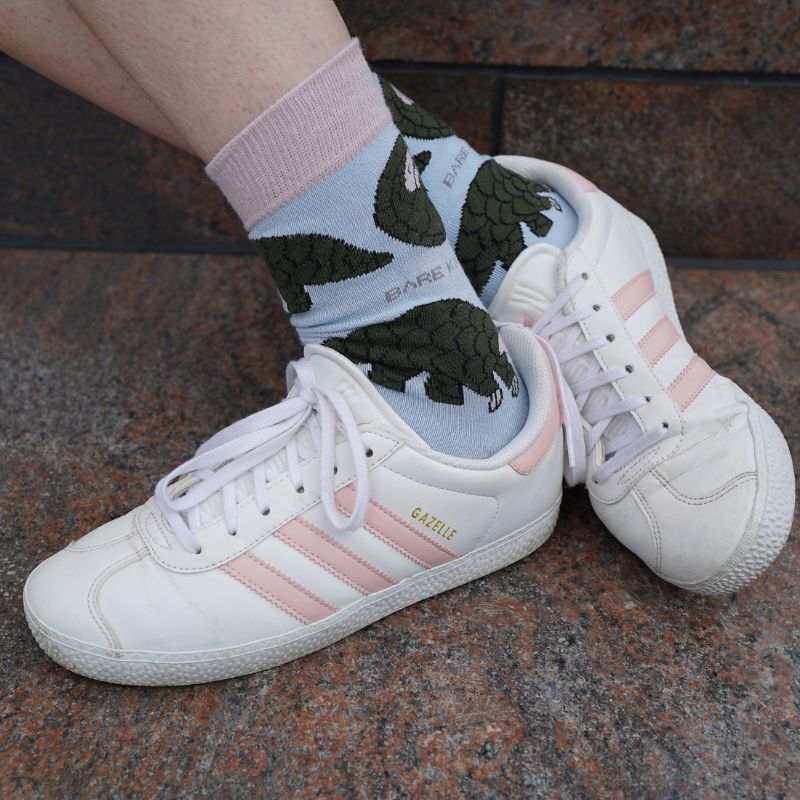
Let's step into the vast world of socks for a moment.
They come in all sorts of shapes, colours, and sizes, to meet all sorts of different needs - socks for diabetics, socks for sensitive skin, socks for dry skin, socks for arthritis... and finally 'normal socks' or 'essential socks for work or school'.
As far as sustainable sock shopping goes, it's safe to assume most people won't buy second-hand socks because it's almost like intimates. You want them new and fresh, and that's totally reasonable.
So then how do you shop sustainable on socks?
With the material they're made from - and if the company has a socio-environmental priority.
You're probably very familiar with cotton or synthetic socks: they're generally the go-to for essentials socks for kids and school and work. They're affordable, but they don't always last. You'll probably poke a hole through them with your big toe sooner than later, and maybe the heel wears out with that marathon you do around the living room during calls. And then you're back to buying another pack of 5 cotton socks for a couple of quid.
So, how do we get around that? How do we find socks that last, that do good for the environment, and don't cost a fortune?
Let's compare different sock materials together.
Today, we'll look at cotton socks, synthetic fibre socks, merino wool socks, cashmere socks, and bamboo socks. We're going to see what their natural properties are (if they've got them), how much these socks cost, how durable they are and whether they disturb the environment during their growth or production.

Let's have a look first at natural properties. Are natural socks better than synthetic socks?
- Bamboo: Bamboo fibres are naturally soft, hypoallergenic, and offer antibacterial properties thanks to their 'Bamboo Kun' characteristic. Bamboo socks offer excellent moisture-wicking features and breathability, keeping feet dry and odour-free (that's great for summer and wetter months).
- Cotton: Cotton is soft, fairly breathable, and widely available. It's hypoallergenic but may retain moisture, potentially causing dampness and odour (so you need to change them very often in the summer months or completely forgo them).
- Synthetic fibres: Polyester, nylon, and acrylic socks are synthetic materials that can be durable, lightweight, and quick-drying. But they lack the breathability and moisture-wicking features found in natural fibres.
- Merino Wool: Merino wool is soft, insulating, and naturally moisture-wicking. It's great for the winter months. Merino wool socks regulate temperature well and are odour-resistant.
- Cashmere: Cashmere is known for its luxurious softness, warmth, and lightweight nature. As socks, they provide excellent insulation but require delicate care, so perhaps they're not great as everyday socks.

Let's check out money: how much do different socks cost?
- Bamboo: Bamboo socks are typically priced in the mid to high range due to their sustainable production and unique properties.
- Cotton: Cotton socks are widely available and tend to be pretty affordable (of course, more luxurious variants like organic cotton and Egyptian cotton socks will be a tad more expensive).
- Synthetic Fibres: The cost of socks made from synthetic fibres varies, but they are generally affordable.
- Merino Wool: Merino wool socks are usually more expensive due to the high-quality wool and additional insulation benefits.
- Cashmere: Cashmere socks are considered a luxury item and are more expensive.
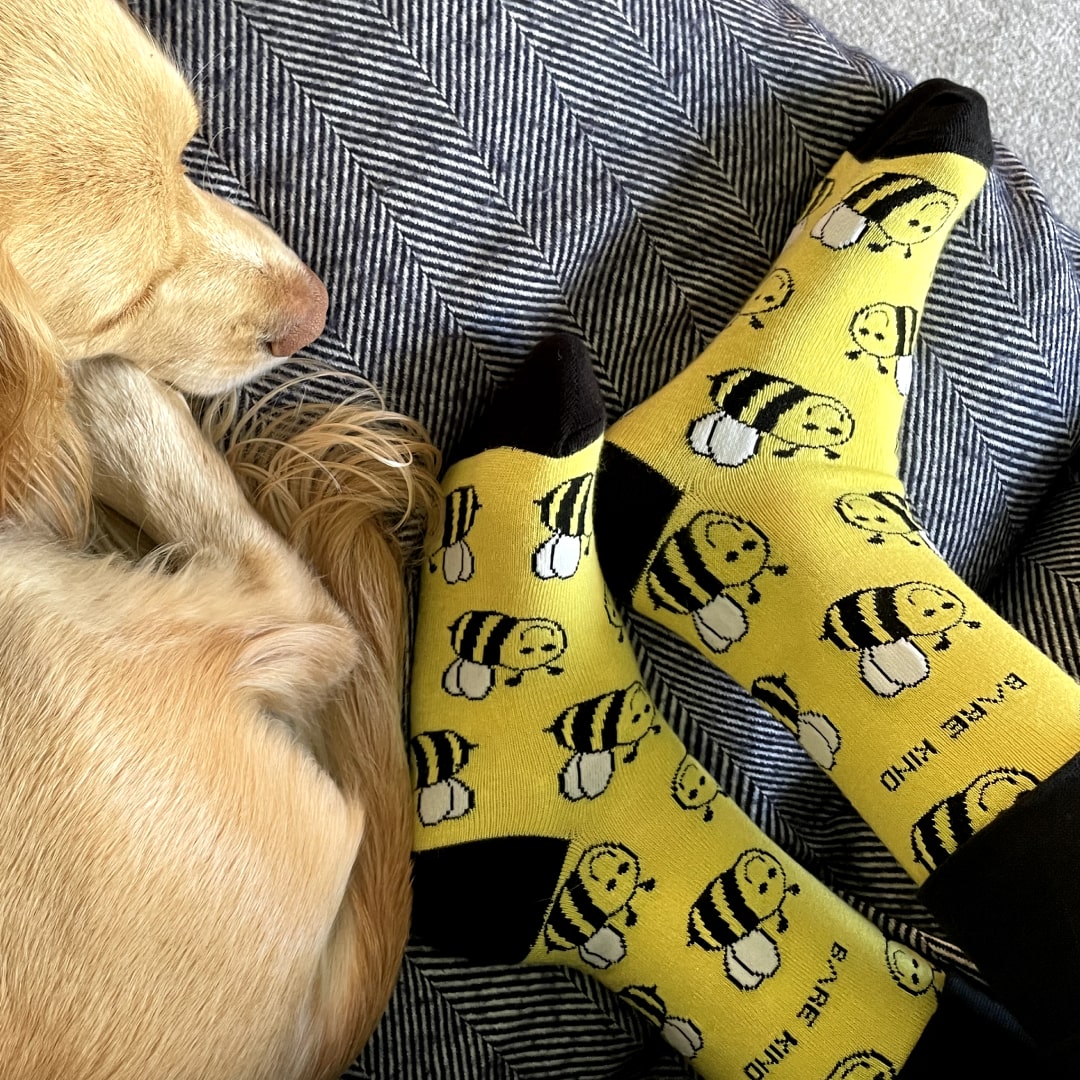
Let's dabble into comfort: what type of sock is most comfortable?
- Bamboo: Bamboo socks offer a luxurious and soft feel against the skin, with excellent breathability and moisture-wicking properties. If they're hand-linked and seamless at the toe, you can bet they're even more soft! (We can vouch that it's like walking on clouds)
- Cotton: Cotton socks are generally comfortable, soft, and breathable.
- Synthetic Fibres: Synthetic fibre socks vary in comfort, but they often provide durability and moisture-wicking capabilities.
- Merino Wool: Merino wool socks can be comfy without becoming itchy thanks to their moisture-wicking and insulation properties.
- Cashmere: Cashmere socks are incredibly soft and provide luxurious comfort.
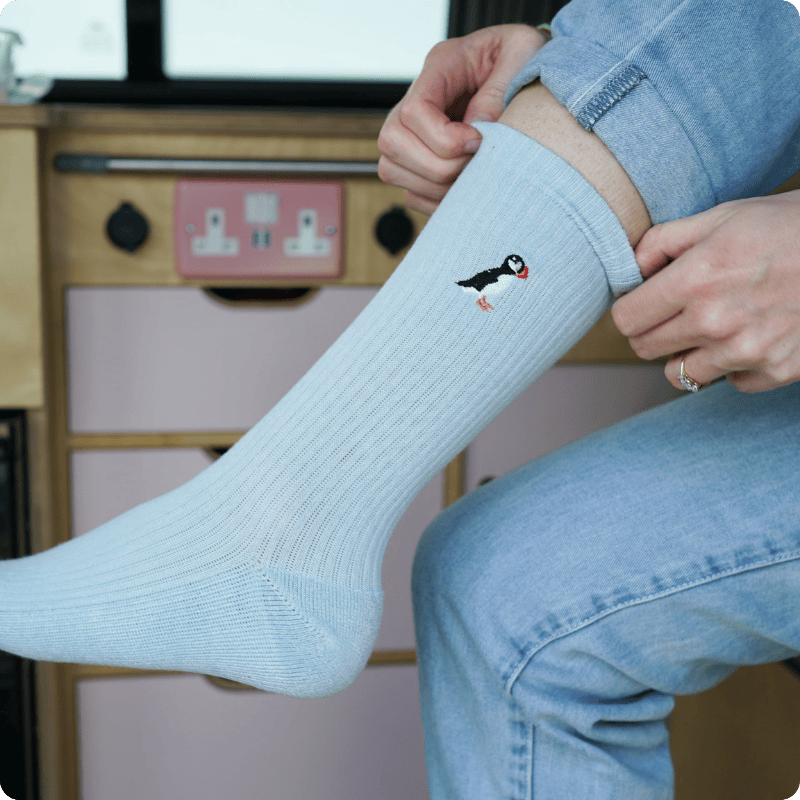
What type of sock is most durable?
- Bamboo: Bamboo socks are known for their durability, as bamboo fibres are strong and resilient.
- Cotton: Cotton socks are generally durable and can withstand regular wear and washing.
- Synthetic Fibres: Synthetic fibre socks are often durable and can maintain their shape and performance over time. These socks don't usually shrink, stretch or wrinkle.
- Merino Wool: Merino wool socks are typically durable but may require more delicate care to maintain their longevity.
- Cashmere: Cashmere socks are delicate and may require extra care. They are not as durable as other materials.

Can socks be good for the environment?
- Bamboo: Bamboo socks have a low environmental impact as bamboo is a highly sustainable and rapidly renewable resource that requires minimal water and no pesticides. It also nourishes the soil that it grows in.
- Cotton: Conventional cotton production involves high water consumption and pesticide use, impacting the environment. Organic cotton is a more sustainable option (but proportionately more expensive).
- Synthetic Fibres: Polyester and other synthetic fibres are derived from petrochemicals, leaving a negative environmental impact.
- Merino Wool: Merino wool is a natural fibre, but its environmental impact depends on the farming practices and processing methods used.
- Cashmere: Cashmere production can have a high environmental impact due to the grazing needs of cashmere goats and the energy-intensive production process.
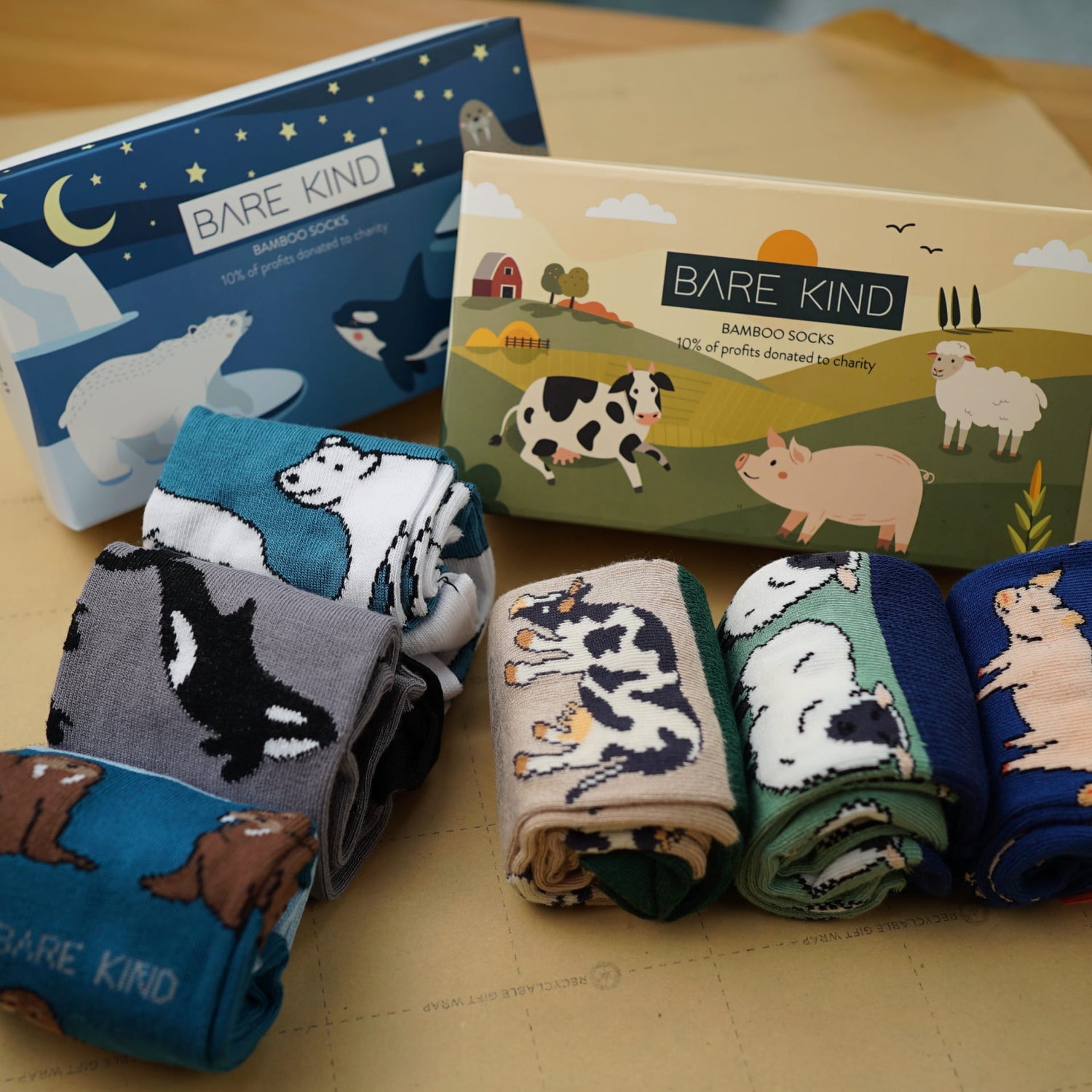
The verdict: which socks should you buy?
For comfort, durability, affordability, and environmental impact...
Your best bet is bamboo socks. Overall, bamboo socks stand out for their sustainable production, natural properties, comfort, durability, and moisture-wicking abilities. They're great for people with skin sensitivities too. Though, it's worth noting that if you need socks for severe medical conditions, diabetics or arthritis, it's good to check in with your doctor for advice on which socks are best for you. Not all bamboo socks are good for diabetics.

Should you invest in bamboo socks that save animals?
At Bare Kind, we didn't just pick the bamboo material for our socks on a whim. Bamboo grows fast, and without chemical or human support, so there's little risk for damaging the environment while harvesting bamboo fibre. It's ridiculously comfortable as fibres and the material itself is very durable - they're even rabbit proof! These socks last.Our bamboo socks are made in a third-generation sock factory in Turkey. That factory is OKEO-Tex certified so no harmful dyes are used. Besides that, they're also SEDEX-certified meaning all the workers are over 18 and paid fair wages. But the best part about our socks is that10% of the profits on every pair are donated to a charity that saves the animal on that sock. We're here to save animals because we love them, but also to provide our customers with the best quality socks ever. We want to make people happy with a simple, humble pair of socks, knowing that they can feel good while doing good for the world - thanks to their bamboo socks from Bare Kind. We believe you'll love our socks and won't regret buying them to support your favourite animals. They make for great gifts for your loved ones, animal lovers and sock lovers.
-
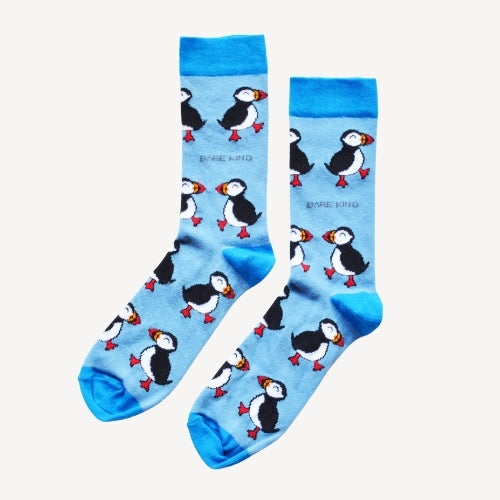
All Bamboo Socks
Our high-quality, hard-wearing socks are made from plush bamboo fibre. These are...
-
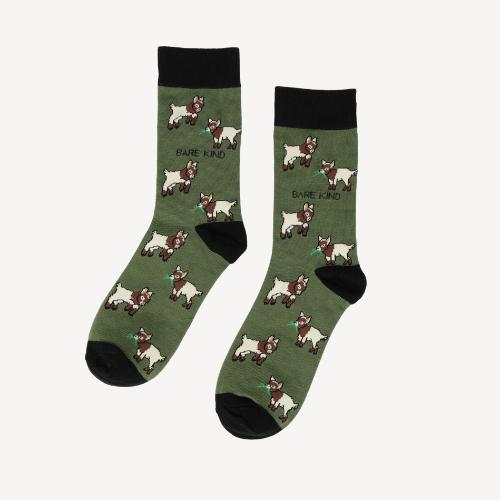
Adults Socks
Our adult bamboo socks are great quality, versatile, and comfortable. Made from...
-
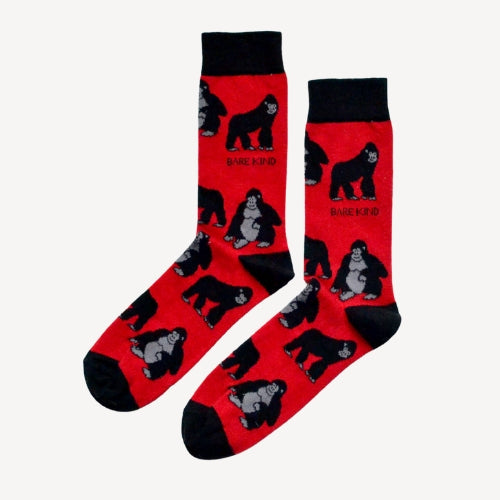
Bamboo socks for Men
Explore our wide range of colourful and dark socks for him. These...
-
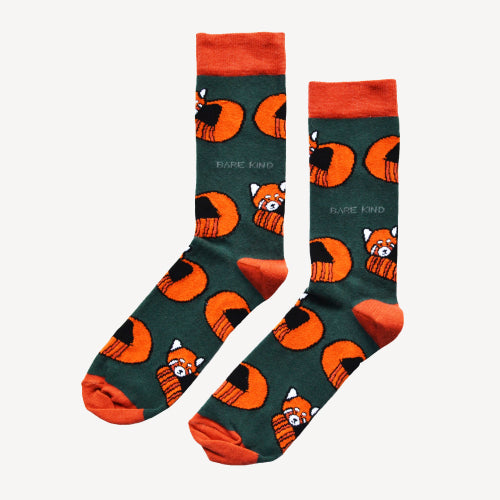
Bamboo Socks for Women
Shop our collection of colourful bamboo socks for women that make the...
-
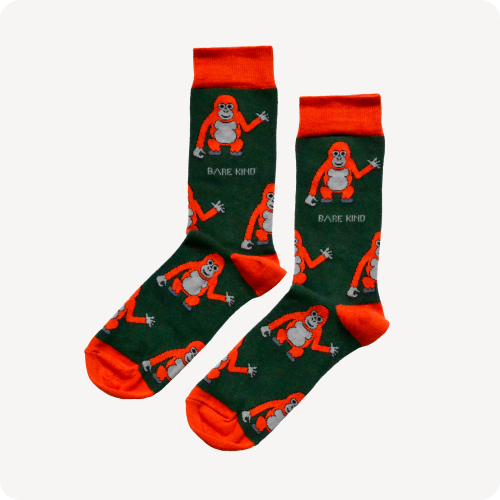
Bestseller Socks
Shop our bestselling sock collection that features our top bamboo socks as...







